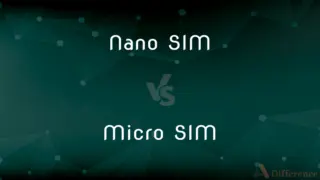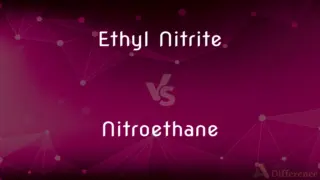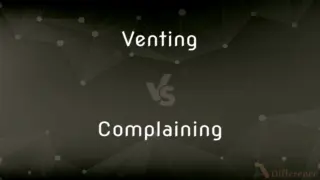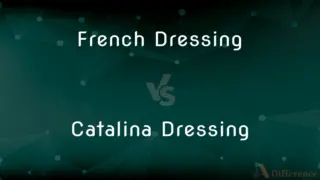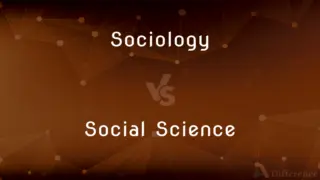Didicoy vs. Pikey — What's the Difference?
By Tayyaba Rehman & Urooj Arif — Updated on April 20, 2024
Didicoy refers to a person of mixed Romani and non-Romani descent, often pejorative; Pikey, a derogatory term for a Traveller, especially of Irish or Romani heritage.

Difference Between Didicoy and Pikey
Table of Contents
ADVERTISEMENT
Key Differences
Didicoy is often used to describe individuals of partial Romani heritage, signifying a mixed ethnic background. Whereas, Pikey is a slang term broadly used in the UK to refer to Irish Travellers or Romani people, generally with negative connotations.
The term Didicoy arises from the Romani word "diklo," meaning a partial or non-full Romani, often perceived as outsiders by both Romani and non-Romani communities. On the other hand, Pikey is believed to derive from "pike," which suggests moving or travelling, but has evolved into a term of abuse or contempt.
In cultural context, Didicoy individuals can face discrimination and identity challenges within the Romani community due to their mixed heritage. Whereas, those labeled as Pikey often encounter broader societal stigma and discrimination, impacting their social and economic opportunities.
Didicoy usage in media and conversation tends to be less common and is specific to the discussion of Romani culture and issues of mixed ethnicity. On the other hand, Pikey has been more widely used and recognized in popular culture, although it is increasingly acknowledged as offensive.
Legally and socially, the use of both terms can be problematic. Didicoy, though less frequently heard, carries its own weight of prejudice. In contrast, Pikey has been more directly challenged in public discourse due to its broader usage and clear derogatory impact.
ADVERTISEMENT
Comparison Chart
Origin
Romani word "diklo" (rag)
Possibly from "pike" (to go or travel)
Common Usage
Describes mixed Romani heritage
Pejorative term for Travellers
Perception
Often seen as outsiders in both communities
Broadly recognized as derogatory
Societal Impact
Faces discrimination, especially in Romani circles
Faces widespread societal stigma
Legal/Social Response
Less publicly discussed
Subject to public and legal scrutiny due to widespread use
Compare with Definitions
Didicoy
Viewed with suspicion or prejudice within and outside Romani communities.
As a Didicoy, she often faced prejudice in social settings.
Pikey
Used to connote someone who is perceived as lower-class or untrustworthy.
He was unfairly called a Pikey by his neighbors.
Didicoy
Sometimes used pejoratively to describe someone perceived as not genuinely Romani.
He was often unfairly dismissed as just a Didicoy.
Pikey
Can invoke stereotypes and discrimination.
Using Pikey pejoratively reinforces harmful stereotypes.
Didicoy
A person of mixed Romani and non-Romani descent, often not fully accepted by either group.
The Didicoy struggled to find a community where he felt fully accepted.
Pikey
Increasingly recognized as inappropriate in public discourse.
Media outlets have been discouraged from using terms like Pikey.
Didicoy
Relates specifically to partial Romani heritage.
Her Didicoy background provided her a unique cultural perspective.
Pikey
Derogatory term for a Traveller, particularly of Irish or Romani origin.
The term Pikey is offensive and should be avoided in speech.
Didicoy
Seldom used in formal contexts, mostly in discussions related to ethnicity and identity.
Academic discussions on ethnicity sometimes reference Didicoy issues.
Pikey
Often associated with itinerant lifestyles.
Pikey lifestyles are frequently misunderstood and stigmatized.
Didicoy
A gypsy or traveller, especially one who is not Romani or is not full-blooded Romani.
Pikey
Pikey (; also spelled pikie, pykie) is a slang term, which is pejorative and considered by many to be a slur. It is used mainly in the UK to refer to people who are of the Traveller community, an ethnic group found in Great Britain and Ireland.
Pikey
(informal) A pike (fish).
Pikey
An itinerant person, especially one of Romani or Irish Traveller heritage.
Pikey
A working-class (often underclass) person with negative connotations of benefit fraud, theft and living on rundown estates.
Pikey
Associated with or filled with pike (fish).
Pikey
Associated with members of the above-mentioned underclass.
Pikey
To steal.
Common Curiosities
What historical context has contributed to the negative connotations of Pikey?
Historical bias against nomadic lifestyles, particularly those of Irish Travellers and Romani people, has contributed to the negative connotations of the term "Pikey."
Is it acceptable to use the term Didicoy in academic writing?
In academic writing, it's important to use the term "Didicoy" carefully and contextually, often in discussions regarding ethnicity and social dynamics among the Romani.
Can the term Pikey ever be used in a non-derogatory way?
While some might use the term colloquially without derogatory intent, its historical and cultural baggage makes it almost always offensive to many people.
How do Romani communities view Didicoys?
Romani communities may view Didicoys with mixed feelings, often due to their partial heritage, which can affect their full acceptance within the community.
What legal implications can arise from using the term Pikey?
Using the term "Pikey" can lead to legal implications, such as accusations of hate speech or discrimination, given its derogatory nature.
How does the discrimination faced by Didicoys differ from that faced by full Romani people?
Didicoys may face discrimination from both Romani and non-Romani people due to their mixed heritage, often feeling like outsiders in both groups.
What steps can be taken to educate people about the offensive nature of Pikey?
Education can involve highlighting the term's origins, its impact on communities, and promoting more respectful language through media and educational programs.
How do media representations affect the perception of Pikey?
Media representations often perpetuate stereotypes and can significantly affect the negative perception of the term "Pikey" by associating it with crime or antisocial behavior.
Are Didicoys recognized legally as a distinct group within the Romani community?
Legally, Didicoys are not typically recognized as a distinct group; they are seen within the broader categories of ethnic identities relevant to Romani communities.
What alternative terms can be used to refer to Didicoys or Pikeys in a respectful way?
For Didicoys, it's better to specify "person of mixed Romani heritage"; for Pikeys, using "Travellers" or specifying Irish Travellers or Romani people is more respectful.
Are there any notable representations of Didicoys in literature or film?
Notable representations are rare, but when they appear, Didicoys are typically portrayed in contexts exploring themes of heritage and identity.
How can community leaders help reduce the use of these derogatory terms?
Community leaders can advocate for awareness, promote inclusive language, and engage in dialogue with media and educational bodies to discourage derogatory terms.
How do the challenges of identity differ between Didicoys and Pikeys?
Didicoys struggle with identity within their ethnic groups due to mixed heritage, while Pikeys often grapple with broader societal stigma and stereotypes.
What impact does the global understanding of these terms have on local communities?
Global misunderstandings or stereotyping of these terms can exacerbate local prejudices, affecting community cohesion and the well-being of individuals labeled as such.
What role does socioeconomic status play in the use of the term Pikey?
Socioeconomic status heavily influences the use of "Pikey," often being employed to demean those perceived as lower socio-economic status or socially marginal.
Share Your Discovery

Previous Comparison
Warmline vs. Hotline
Next Comparison
Constitution vs. LegislationAuthor Spotlight
Written by
Tayyaba RehmanTayyaba Rehman is a distinguished writer, currently serving as a primary contributor to askdifference.com. As a researcher in semantics and etymology, Tayyaba's passion for the complexity of languages and their distinctions has found a perfect home on the platform. Tayyaba delves into the intricacies of language, distinguishing between commonly confused words and phrases, thereby providing clarity for readers worldwide.
Co-written by
Urooj ArifUrooj is a skilled content writer at Ask Difference, known for her exceptional ability to simplify complex topics into engaging and informative content. With a passion for research and a flair for clear, concise writing, she consistently delivers articles that resonate with our diverse audience.















